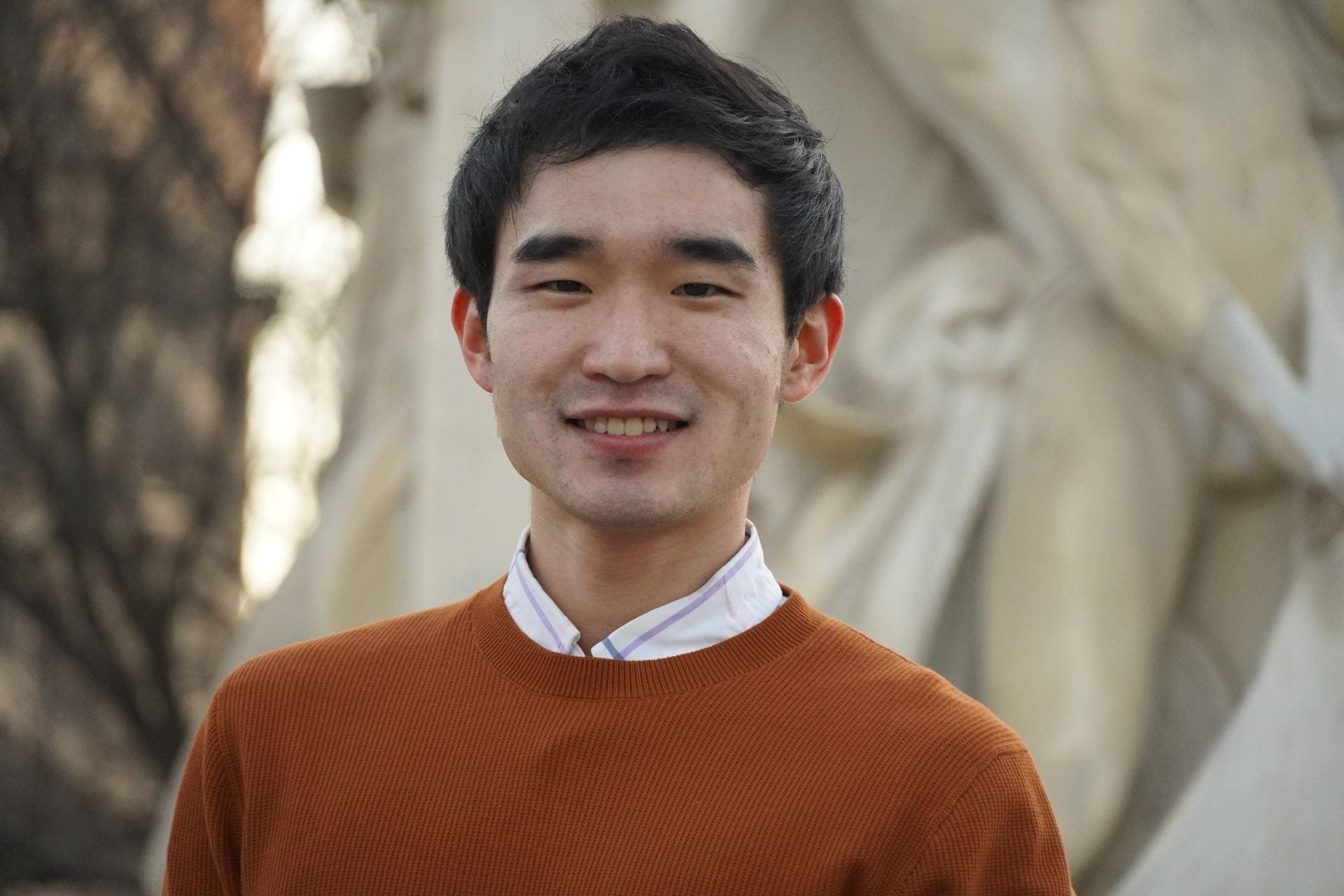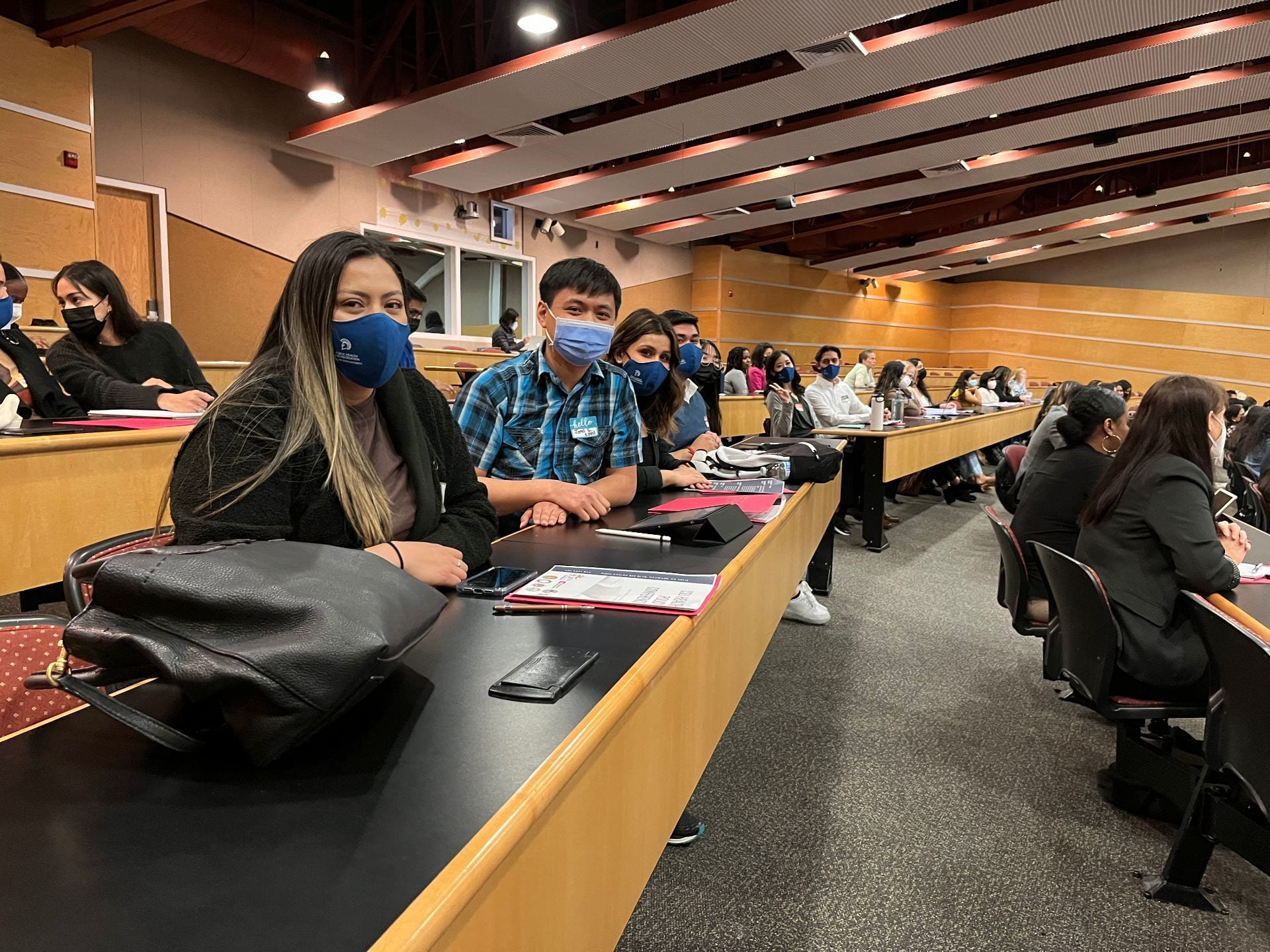 Dr. Chulwoo ‘Charles’ Park has been awarded the National Institutes of Health (NIH) SuRE-First Award (R16) for a 4-year research period from August 2023 to June 2027. In his research, the population is on Asian/Asian American immigrant young adults learn multiple languages, being exposed to English as an additional language (L2) in the United States after mainly using a first language (L1) from their country of origin. The study population is also multilingual 1.5 generation Asian/Asian American immigrant young adults aged 18-25 years in the San Francisco Bay Area. In this grant, Dr. Park is investigating the impact of learning an additional language, namely, the dominant language of the community, on the mental health and psychological well-being of Asian/Asian American immigrant young adults. The study also explores its influence on their sense of acceptance, inclusion, and ethnic identity in the United States. This study will provide suggestions to address the structural drivers of mental health disparities among immigrant populations, such as results of the experience of racism, discrimination, and anti-Asian hate crime, which are linked to individual’s own multilingual language identity and skills.
Dr. Chulwoo ‘Charles’ Park has been awarded the National Institutes of Health (NIH) SuRE-First Award (R16) for a 4-year research period from August 2023 to June 2027. In his research, the population is on Asian/Asian American immigrant young adults learn multiple languages, being exposed to English as an additional language (L2) in the United States after mainly using a first language (L1) from their country of origin. The study population is also multilingual 1.5 generation Asian/Asian American immigrant young adults aged 18-25 years in the San Francisco Bay Area. In this grant, Dr. Park is investigating the impact of learning an additional language, namely, the dominant language of the community, on the mental health and psychological well-being of Asian/Asian American immigrant young adults. The study also explores its influence on their sense of acceptance, inclusion, and ethnic identity in the United States. This study will provide suggestions to address the structural drivers of mental health disparities among immigrant populations, such as results of the experience of racism, discrimination, and anti-Asian hate crime, which are linked to individual’s own multilingual language identity and skills.
Category Archives: Public Health and Recreation
Community Partnered Approach to Address Health Disparities: The Santa Clara County Health Equity Agenda
By: Dr. Andrew Carter
The ongoing COVID-19 pandemic has reified and exacerbated historical and structurally-rooted health inequities across the country. In Santa Clara County, the pandemic and its wider impact has had a disproportionately negative impact on the health of Black, Latinx, and low-income communities – particularly in East San Jose, Gilroy, and pockets throughout the County. To address this crisis, Santa Clara County Supervisor Cindy Chavez proposed the establishment of a Health Equity Agenda in June, 2021. The goal of the Agenda is to establish a Steering Committee of county leaders, determine key health equity metrics for the County, and propose recommendations to address health inequities. Driven by Steering Committee members from Working Partnerships USA, The Health Trust, Santa Clara Family Health Plan (SCFHP), Behavioral Health Contractors Association, Black Leadership Kitchen Cabinet, Santa Clara County Department of Public Health, and Community Health Partnership, the Agenda incorporates both grasstops and grassroots approaches to represent multi-level perspectives from the public, academic, professional, and community sectors.
Establishing such a lofty agenda is no easy task. The Steering Committee sought out consultants to support the development of the Agenda, rooted in the Bay Area Regional Health Inequities Initiative (BARHII) model toward achieving racial health equity (which prioritizes an upstream, justice-oriented approach). The Redstone Strategy Group, a leading social impact consulting firm has spearheaded the effort to examine health inequities in the County identifiable through existing data sources, facilitate dialogue with the Steering Committee to understand priorities grounded in their organizations’ expertise, and delve into literature and best practices around potential policies and programs to address inequities.
On the academic and community side, Drs. Vicky Gomez and Rachel Berkowitz, along with a team of four SJSU undergraduate and graduate Public Health and Recreation students, have been tapped to engage with the local community to understand and elevate the priorities of residents and community leaders regarding the Health Equity Agenda. Drawing on their backgrounds in community health education, participatory action research, and place-based community development, Gomez and Berkowitz have conducted 15 interviews with key stakeholders from diverse organizations (including Destination:Home, AACI, Saratoga Area Senior Coordinating Council, Indian Health Center of Santa Clara Valley, Latinas Contra Cancer, and many more) and are preparing to host a number of community conversations to learn the locally-constituted, context-specific perspectives of Santa Clara County residents. Information from the interviews and conversations will be integrated with Redstone’s proposed metrics and recommendations to establish a multifaceted Health Equity Agenda. Additionally, the SJSU team will work to develop several digital stories (i.e., a community-based participatory method that incorporates short-form, digital media production to center marginalized voices) to illuminate and make real the experiences of county residents related to health inequities.
The Health Equity Agenda constitutes a multi-year, four-phase plan to develop, implement, and evaluate county-wide health equity interventions over the next 5-10 years. Mirroring national and global calls to incorporate intersectional and intersectoral approaches in addressing health inequities, the Health Equity Agenda represents an important step toward improving and ultimately rectifying structural health disparities experienced by local Santa Clara County residents. If you have specific questions or would like more information, please contact:
Dr. Vicky Gomez vicky.gomez@sjsu.edu
Dr. Rachel Berkowitz rachel.berkowitz@sjsu.edu
CSU Health Policy Conference
By: Dr. Anji Buckner
Nearly two dozen Public Health students attended the one-day CSU-Health Policy Conference. There were about ten different CSU programs and nearly 250 students who attended one of the two regionally hosted events. The SJSU delegation attended the Northern-California conference at CSU East Bay, where we started with a conversation with the Secretary of Health and Human Services for California, Dr. Mark Ghaly and concluded with a panel of leaders from the California Department of Public Health. The afternoon began with an impressive in-person panel of local public health leaders including: the Director of Public Health, Policy, and Planning from San Mateo County, Marc Meulman; the Deputy Public Health Officer for Santa Cruz County and Interim Health Officer for San Benito County, David Ghilarducci; Alameda County Public Health Department Director, Kimi Watkins-Tartt; and Contra Costa County Health Services Director, Anna Roth. We followed with sessions about careers in policy development, social justice and community advocacy, and applying for graduate school. We wrapped up the day with networking and cross-campus socializing.
Thank you PHR Chair, Dr. Iwasaki and CHHS Dean Shillington for supporting these events and introducing our NPHW guests. To everyone who participated – thank you for joining and we hope to see you next April for NPHW 2023 and the annual CSU-Health Policy Conference. Our gratitude to The Career Exploration Committee (Anji Buckner, Josh Bauer, Catherine Doyle, Marcelle Dougan, and Vicky Gomez) of the Public Health and Recreation Department who hosted and participated in two exciting April events.
National Public Health Week 2022
By: Dr. Anji Buckner
Four events took place this year in honor of National Public Health Week. The theme, “Public Health is Where You Are”, was explored in different ways through each event. We began with learning how to visualize our communities in a GIS mapping workshop, led by our own Russ Bartlett (PHR Lecturer). Next we had our keynote presentation with Dr. Anthony Iton (Senior Vice President, Building Healthy Communities, California Endowment). Dr. Iton, led us on a data-driven journey to see systemic injustices and the impacts on population health. We closed the week with two networking events: a workshop with Kristin Keller (SJSU Career Center) and Networking with Professionals, where eight professionals, all working to promote and improve population health in our communities, joined us for an hour of virtual networking. NPHW 2022 was a success. We had 640 people attend our four incredible events. If you are curious, we invite you to explore the materials and recordings will remain on our NPHW 2022 Events page and available as a resource.
Diversity in Public Health
By: Dr. Ni Zhang and Pranuthi Pagidipati
The past year has brought a wave of adjustments across the United States: adjustment to climate change, adjustment to a change in leadership, and more importantly adjusting to a sci-fi-movie-style pandemic era. One year into the public health crisis, the bleak consequences of the pandemic have been blatantly displayed: the revelation of how deep the roots of social and racial injustice were planted in this nation. The pandemic served to highlight an ever existing, yet newly designated epidemic: racism. At San Jose State University, the outcry and protests against recent miscarriages of justice have been loud. But students wonder if there is ever going to be a world where diversity, inclusion and equity become more than just terminology. We wonder when the time will come when all cultures will be included and amalgamated into the American landscape.
A world where racial justice and equity no longer needs to be considered and where every ethnicity and culture are integrated and not separated in society is one we should be striving for. In order to get there, it is important to acknowledge and celebrate differences between one another. When implicit biases are foregone and all forms of culture are validated in society, that is when it can be considered “truly multicultural” according to Monica Allen, DrPh, MPH. during one of the Spartan Legacy Training Academy workshops. As part of her academic and professional career, Dr. Allen took a special interest in multicultural health. Her belief is that the wellbeing of individuals is improved when social issues are first addressed. With regard to health, it does not just refer to individual health, but also social health. When health is addressed at a societal level, those changes then affect populations and individuals. To demonstrate, the current social health is poor. The U.S. is so deeply divided and politically charged that those divisions and beliefs have permeated into daily lives, resulting in disparities across the board. The poor condition of American society today also contributes to the prejudice and hatred between cultures, leading to many of these negative incidents. For example, the shooting of Jacob Blake and the deaths of George Floyd, Breonna Taylor, and Daunte Wright among many others sparked a demand for justice and change. Just weeks ago, the violence against Asian American and Pacific Islander (AAPI) communities reached a peak during the tragic Atlanta spa shootings that resulted in eight fatalities. It is clear that society is not healthy when we are seeing so many victims of a social disease.
In order to improve the health of society in the present and promote cultural equity, “We need to change our way of thinking about it fundamentally,” says Dr. Allen. The change begins with basic terminology. Given the depth of the divide in this country, terms such as “acceptance” or “tolerance” are no longer sufficient. She emphasizes that “We need to value diversity; we need to understand diversity; [we need to] understand that this country was built on diversity.” Understanding and incorporating diversity, inclusion, and equity into daily life is the first step forward in healing and bridging the divide.




